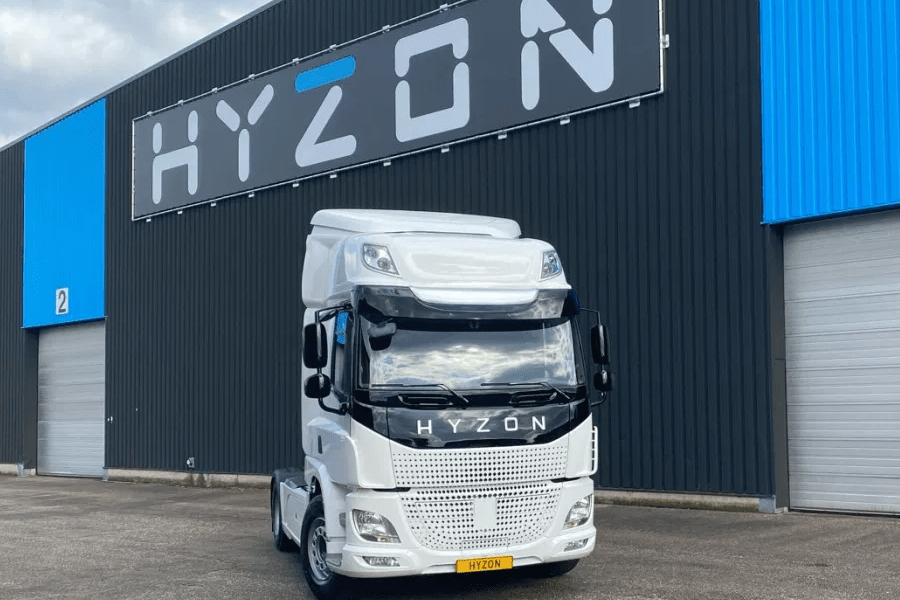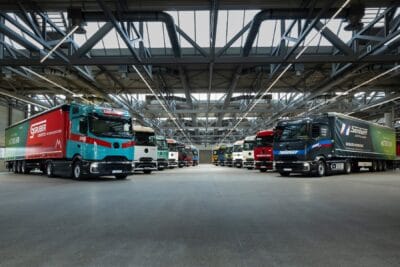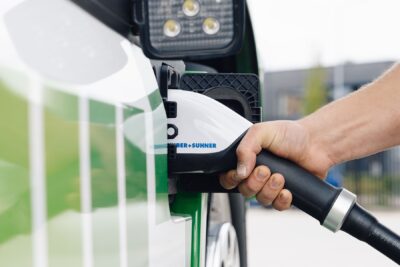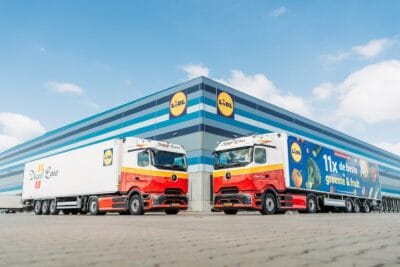Hyzon Motors changes CEO
Hyzon Motors, a manufacturer of H2 fuel cell commercial vehicles, has replaced former CEO Craig Knight. The post will now be held by the company’s former Chief Strategy Officer Parker Meeks, who has become Interim CEO.
Craig Knight is also leaving the role of director of Hyzon Motors. The Board of Directors appointed Meeks, saying that it plans to search for potential external and internal candidates to fill the job in the longer term.
While Hyzon Motors has had an incredibly fast expansion since it was founded in 2020, the company benefitted from the technology, expertise and personnel of Horizon fuel cell technologies – a hydrogen fuel cells company founded by Craig Knight and George Gu some 17 years ago. The board also demoted George Gu from executive chairman to non-executive chairman, where the company says he will advise Meeks on strategic R&D initiatives.
In February last year, Hyzon Motors went public via a so-called SPAC deal by means of a merger with the Nasdaq-listed Decarbonization Plus Acquisition Corporation. According to Freight Waves, this freed up more than $550 million for the company’s expansion. And expand it did, at an eye-watering place, not only taking its holistic approach of collaborating on hydrogen infrastructure to Australasia, USA, Europe, and the Middle East but also sold a great deal of hydrogen fuel cell trucks in China shortly after the government freed up funding for Chinese companies to purchase hydrogen fuel cell trucks.
It is the sale of fuel cell trucks in China which caught the attention of short-sellers Blue Orca last year, that put the US-based company under the scrutiny of the Securities and Exchange Commission (SEC). Although the short seller’s claims were well refuted, it appears that the SEC investigation unearthed some ill-reported financial problems. The former CEO Craig Knight now appears to be in hot water about how the trucking fuel cell maker reported revenue in China and how internal financial controls were managed.
Now the company finds itself in an awkward position. In its SEC filing, the truckmaker said it could not meet the Nasdaq deadline for late filings of financial results and could not afford to accelerate its internal investigation. This may put its Nasdaq listing in danger.
“The company anticipates significant changes to the results of operations for the three and six months ended June 30, 2022, as compared to the corresponding periods ended June 30, 2021,” noted Hyzon Motors in the SEC filing, as reported by Freight Waves. “The final dollar impact to the results of operations are not yet determinable due to the ongoing investigation.”
At the beginning of this month, the delay in the Q2 financial reports sent the company’s stock down 38 per cent. The company is also having trouble in Europe, also saying that it “had identified operation inefficiencies at Hyzon Motors Europe B.V, which is the joint venture with Holthausen Clean Technology Investments. Quite recently, Hyzon Motors announced the acquisition of the German trucking company Orten Betriebs GmbH and its subsidiaries, as well as Orten Electric Trucks GmbH. The deal was originally expected to close in the fourth quarter of 2022. So far, no statements have been made on this front.
Controversial growing pains are nothing new to the disruptive world of zero-emission transport. Nikola Motor, another hydrogen fuel cell commercial vehicle manufacturing startup famously stumbled leading to the resignation of its former CEO Trevor Milton under allegations of misrepresenting the company’s progress. Now it seems Nikola has at least recovered enough to allow an all-stock purchase of the struggling battery maker Romeo Power.
In its short existence so far, Hyzon Motors has been a trailblazer of collaborative thinking for commercial vehicles. The company has shown that hydrogen infrastructure works optimally with commercial vehicle activities since the routes, numbers and requirements of vehicles are set, allowing for better planning and financing of refuelling facilities. Fuel cell vehicles are generally considered most energy effective in hard-to-decarbonise sectors, such as long-haul, heavy-duty trucking applications, maritime and aviation applications.
hyzonmotors.com, freightwaves.com (change of CEO), freightwaves.com (financial troubles in early August)





0 Comments